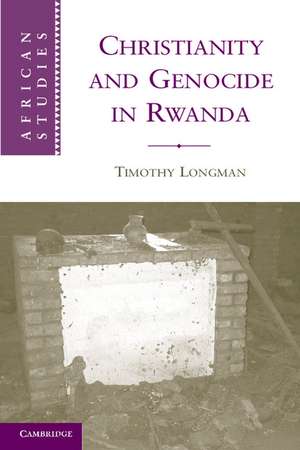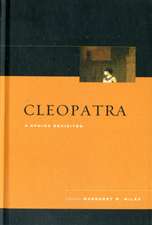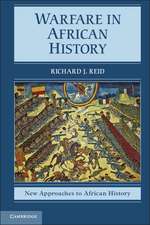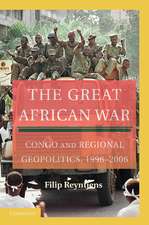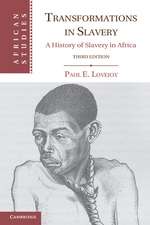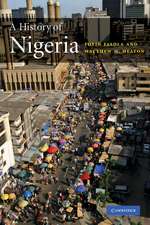Christianity and Genocide in Rwanda: African Studies, cartea 112
Autor Timothy Longmanen Limba Engleză Paperback – 30 mar 2011
| Toate formatele și edițiile | Preț | Express |
|---|---|---|
| Paperback (1) | 273.89 lei 6-8 săpt. | |
| Cambridge University Press – 30 mar 2011 | 273.89 lei 6-8 săpt. | |
| Hardback (1) | 640.98 lei 6-8 săpt. | |
| Cambridge University Press – 6 sep 2009 | 640.98 lei 6-8 săpt. |
Din seria African Studies
-
 Preț: 177.35 lei
Preț: 177.35 lei -
 Preț: 231.24 lei
Preț: 231.24 lei -
 Preț: 275.85 lei
Preț: 275.85 lei -
 Preț: 178.45 lei
Preț: 178.45 lei -
 Preț: 204.11 lei
Preț: 204.11 lei -
 Preț: 202.11 lei
Preț: 202.11 lei -
 Preț: 223.29 lei
Preț: 223.29 lei -
 Preț: 310.62 lei
Preț: 310.62 lei -
 Preț: 342.31 lei
Preț: 342.31 lei - 11%
 Preț: 696.80 lei
Preț: 696.80 lei -
 Preț: 184.93 lei
Preț: 184.93 lei -
 Preț: 238.11 lei
Preț: 238.11 lei -
 Preț: 177.35 lei
Preț: 177.35 lei -
 Preț: 208.25 lei
Preț: 208.25 lei -
 Preț: 299.45 lei
Preț: 299.45 lei - 22%
 Preț: 326.14 lei
Preț: 326.14 lei - 15%
 Preț: 459.92 lei
Preț: 459.92 lei - 13%
 Preț: 295.49 lei
Preț: 295.49 lei - 13%
 Preț: 296.11 lei
Preț: 296.11 lei - 18%
 Preț: 1007.12 lei
Preț: 1007.12 lei - 18%
 Preț: 1050.78 lei
Preț: 1050.78 lei -
 Preț: 446.37 lei
Preț: 446.37 lei - 12%
 Preț: 301.75 lei
Preț: 301.75 lei - 25%
 Preț: 770.26 lei
Preț: 770.26 lei -
 Preț: 110.05 lei
Preț: 110.05 lei - 18%
 Preț: 1106.02 lei
Preț: 1106.02 lei -
 Preț: 480.24 lei
Preț: 480.24 lei - 18%
 Preț: 1003.30 lei
Preț: 1003.30 lei - 18%
 Preț: 182.41 lei
Preț: 182.41 lei -
 Preț: 486.80 lei
Preț: 486.80 lei -
 Preț: 489.10 lei
Preț: 489.10 lei -
 Preț: 477.72 lei
Preț: 477.72 lei - 25%
 Preț: 853.03 lei
Preț: 853.03 lei - 18%
 Preț: 179.93 lei
Preț: 179.93 lei - 26%
 Preț: 762.16 lei
Preț: 762.16 lei -
 Preț: 321.93 lei
Preț: 321.93 lei - 18%
 Preț: 710.05 lei
Preț: 710.05 lei - 13%
 Preț: 311.00 lei
Preț: 311.00 lei -
 Preț: 273.50 lei
Preț: 273.50 lei - 18%
 Preț: 995.09 lei
Preț: 995.09 lei - 18%
 Preț: 703.45 lei
Preț: 703.45 lei -
 Preț: 322.12 lei
Preț: 322.12 lei -
 Preț: 287.48 lei
Preț: 287.48 lei -
 Preț: 286.69 lei
Preț: 286.69 lei
Preț: 273.89 lei
Nou
Puncte Express: 411
Preț estimativ în valută:
52.41€ • 54.15$ • 43.60£
52.41€ • 54.15$ • 43.60£
Carte tipărită la comandă
Livrare economică 19 martie-02 aprilie
Preluare comenzi: 021 569.72.76
Specificații
ISBN-13: 9780521269537
ISBN-10: 0521269539
Pagini: 372
Ilustrații: 3 maps
Dimensiuni: 152 x 229 x 21 mm
Greutate: 0.54 kg
Editura: Cambridge University Press
Colecția Cambridge University Press
Seria African Studies
Locul publicării:New York, United States
ISBN-10: 0521269539
Pagini: 372
Ilustrații: 3 maps
Dimensiuni: 152 x 229 x 21 mm
Greutate: 0.54 kg
Editura: Cambridge University Press
Colecția Cambridge University Press
Seria African Studies
Locul publicării:New York, United States
Cuprins
Introduction: 1. 'People came to mass each day to pray, then they went out to kill': Christian churches, civil society, and genocide; Part I. 'River of Blood': 2. 'Render unto Caesar and Musinga …': Christianity and the colonial state; 3. Churches and the politics of ethnicity; 4. 'Working hand in hand': Christian churches and the postcolonial state (1962–90); 5. 'Giants with feet of clay': the churches and democratization (1990–2); 6. 'It is the end of the world': Christian churches and genocide (1993–4); Part II. 'God Has Hidden His Face': 7. Kirinda: local churches and the construction of hegemony; 8. Biguhu: local churches, empowerment of the poor and challenges to hegemony; 9. 'Commanded by the devil': Christian involvement in the genocide in Kirinda and Biguhu; Conclusion: 10. Churches and accounting for genocide.
Recenzii
Reviews of the hardback: 'This book is far more than a profoundly moving and convincing account of one of the late-twentieth century's defining events. It is indispensable for scholars in fields as diverse as conflict and genocide studies, civil society, and religion generally. Longman's analysis of Rwanda's churches as important repositories of power, and thus inherently political organizations, capable both of buttressing authority and of challenging it, constitutes a huge theoretical advance in conceptualizing the role of religion in public life.' Paul Gifford, School of Oriental and African Studies, University of London
'The massive involvement of Christian communities in the killing of Tutsi is one of the most disturbing and controversial questions in the background of the Rwandan bloodbath. In this path-breaking inquest, Tim Longman brilliantly illuminates this long-neglected aspect of the Rwandan tragedy. His book stands as a major contribution to our understanding of the less than edifying role of the Church in Rwanda and other genocidal settings.' Rene Lemarchand, Emeritus Professor, University of Florida
'This thoughtful study significantly advances our understanding of the 1994 genocide in Rwanda. In a bold and nuanced analysis, Longman shows how and why churches linked to the state and imbued with 'a conservative, hierarchical, bigoted version of Christianity' gave moral sanction to violence against Tutsi, making it easier for people to participate in the genocide. Using local case studies, the book elucidates power struggles within churches that mirrored and also shaped conflicts in civil society. This view from below provides valuable insights on the concerns and fears of ordinary people during the turbulent democratization period of early 1990s Rwanda, while Longman's unsettling conclusions constitute a cautionary tale: 'if religious institutions become too closely tied to state power,' he warns, 'they have the capacity to legitimize abhorrent state actions'.' Catharine Newbury, Five College Professor of Government and African Studies, Smith College
'… Christianity and Genocide in Rwanda is an enlightening and enthralling account of the Christian churches' failure at both institutional and evangelical levels in Rwanda before and during the 1994 genocide.' The Journal of Africa
'Based on long-term fieldwork in Rwanda before and after the genocide, this book makes a major contribution to the literature on religion and conflict as well as on the 1994 Rwandan genocide … Longman's long-term engagement with Rwanda, as well as his familiarity with the literature in French and English on the country, has made him one of the leading American experts on the African Great Lakes region and also on religion and conflict.' International Journal of African Historical Studies
'… Longman's insightful and original contribution provides a fresh perspective on the role of the churches in Rwanda, analyzing them as inherently political organizations that had become too closely tied to state power and continuously stressed obedience to political authorities.' Daewon Moon, Africanus Journal
'The massive involvement of Christian communities in the killing of Tutsi is one of the most disturbing and controversial questions in the background of the Rwandan bloodbath. In this path-breaking inquest, Tim Longman brilliantly illuminates this long-neglected aspect of the Rwandan tragedy. His book stands as a major contribution to our understanding of the less than edifying role of the Church in Rwanda and other genocidal settings.' Rene Lemarchand, Emeritus Professor, University of Florida
'This thoughtful study significantly advances our understanding of the 1994 genocide in Rwanda. In a bold and nuanced analysis, Longman shows how and why churches linked to the state and imbued with 'a conservative, hierarchical, bigoted version of Christianity' gave moral sanction to violence against Tutsi, making it easier for people to participate in the genocide. Using local case studies, the book elucidates power struggles within churches that mirrored and also shaped conflicts in civil society. This view from below provides valuable insights on the concerns and fears of ordinary people during the turbulent democratization period of early 1990s Rwanda, while Longman's unsettling conclusions constitute a cautionary tale: 'if religious institutions become too closely tied to state power,' he warns, 'they have the capacity to legitimize abhorrent state actions'.' Catharine Newbury, Five College Professor of Government and African Studies, Smith College
'… Christianity and Genocide in Rwanda is an enlightening and enthralling account of the Christian churches' failure at both institutional and evangelical levels in Rwanda before and during the 1994 genocide.' The Journal of Africa
'Based on long-term fieldwork in Rwanda before and after the genocide, this book makes a major contribution to the literature on religion and conflict as well as on the 1994 Rwandan genocide … Longman's long-term engagement with Rwanda, as well as his familiarity with the literature in French and English on the country, has made him one of the leading American experts on the African Great Lakes region and also on religion and conflict.' International Journal of African Historical Studies
'… Longman's insightful and original contribution provides a fresh perspective on the role of the churches in Rwanda, analyzing them as inherently political organizations that had become too closely tied to state power and continuously stressed obedience to political authorities.' Daewon Moon, Africanus Journal
Notă biografică
Descriere
This book studies the role of Christian churches in the 1994 Rwandan genocide.
